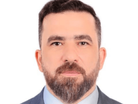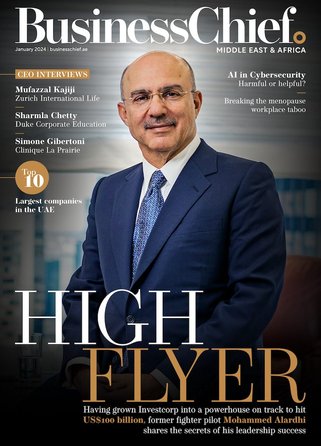COP28 Talks: Hassan Farrouh, Sustainability Head, TUV SUD

Hassan Farrouh is feeling optimistic about COP28.
As Green Energy and Sustainability Head for certification, auditing and advisory firm TUV SUD in the Middle East, Hassan was actively involved in last year’s COP27 Egypt where he witnessed first-hand the urgency for change.
“The previous conference highlighted the pressing need for substantial progress, though subsequent actions fell short of expectations,” Hassan tells Business Chief.
Despite raising the bar for climate mitigation in Glasgow, COP27 was unable to commit to a level of ambition commensurate to the task.
That means the challenge of leading the world to the right level of action will fall to the UAE.
To be held in Expo City Dubai from November 30 to December 12, COP28 UAE is poised to be a pivotal moment for global climate action, marking the first comprehensive assessment of the Paris Agreement’s impact.
And Hassan – who is actively involved in movements such as the IRENA Concept note of the COP28 event on Human Capital under the Alliance for Industry Decarbonisation – says his hopes for the conference are “elevated”.
“I anticipate this upcoming gathering to be a transformative moment where global leaders move from aspirations to concrete, enforceable actions. I'm optimistic that COP28 will unite nations in prioritising sustainability.
“My optimism lies in the belief that COP28 will align nations, businesses, and societies toward a more sustainable future.”
UAE as host nation
For Hassan, who has been instrumental in promoting sustainable services within the GCC, working with clients including NEOM, Petrofac and ACWA Power, the choice of the UAE as host nation amplifies the significance of these discussions.
“Historically associated with fossil fuels, the Middle East now finds itself in a pivotal role, steering the global trajectory toward a cleaner, more sustainable energy landscape.”
Within this landscape, Hassan points to the UAE as a “beacon of progress”, standing out for its significant investments in renewable energy – and achievement of the lowest global rates of solar energy production.
With more than 70% of its economy generated outside the oil and gas sector, the UAE actively supports key green global projects, reinforcing its influence beyond its borders, he says.
“The country’s strides in renewable energy don't just highlight its commitment but establish a compelling model for nations seeking to embrace clean energy solutions.”
What’s more, at the crossroads of North and South, East and West, the UAE is perfectly placed to build bridges and pursue ambitious but practical consensus, not just between the global south and global north but all stakeholders.
“The UAE's role as a host amplifies the inclusivity of discussions and actions on climate change. By ensuring diverse voices and perspectives are heard, it creates a platform where regional nuances and priorities are acknowledged, ultimately leading to more comprehensive and effective climate strategies.”
Challenges facing the region
While maintaining such optimism, Hassan believes it is crucial to confront existing challenges head-on. He points to a spectrum of critical challenges currently impeding effective climate change action, among which is the reliance on fossil fuels among regional companies.
Among other regional challenges, Hassan says “inconsistent or inadequate climate policies and regulations” are a barrier to adoption of sustainable practices – and this hindering investment in eco-friendly technologies due to the absence of clear guidelines and incentives.
Embracing clean technologies also requires substantial investment and transformation – and poses a significant hurdle for businesses which need to continue to maintain operational efficiency and profitability.
“To overcome these obstacles, collaborative efforts between the public and private sectors, innovative strategies, supportive policies, and an unwavering commitment to long-term sustainability goals are imperative."
In the run-up to COP28, being held in Dubai from November 30 to December 12, Business Chief Middle East and Africa is talking to regional sustainability leaders about the opportunities and challenges facing the region and their hopes for the climate conference.
As well as Hassan, we talk to Sherif Tawfik, Sustainability Chief for Microsoft Middle East, Africa and Central and Southeast Europe and to Samer Kamal, an impact entrepreneur and established thought leader in the environment and sustainability industry who is the first-ever Chief Sustainability Officer of Averda.
Featured Articles
SAP has announced it has appointed a new President for a newly-created EMEA region, aiming to make the most of the opportunities of cloud and AI
technology
From fighter pilot to fashion house financier, Mohammed Alardhi has taken Investcorp to great heights – so what’s the secret to his success?
Dr Omar Al-Attas, Head of Environmental Protection and Regeneration at Red Sea Global, shares his COP28 hopes and approach to regenerative tourism
strategy




